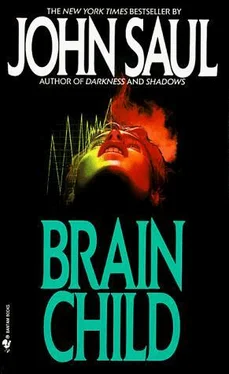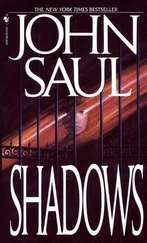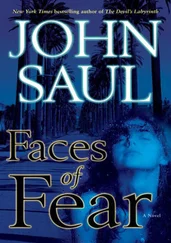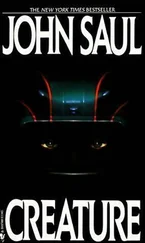John Saul - Brain Child
Здесь есть возможность читать онлайн «John Saul - Brain Child» весь текст электронной книги совершенно бесплатно (целиком полную версию без сокращений). В некоторых случаях можно слушать аудио, скачать через торрент в формате fb2 и присутствует краткое содержание. Год выпуска: 1985, ISBN: 1985, Издательство: Random House, Inc., Жанр: Ужасы и Мистика, на английском языке. Описание произведения, (предисловие) а так же отзывы посетителей доступны на портале библиотеки ЛибКат.
- Название:Brain Child
- Автор:
- Издательство:Random House, Inc.
- Жанр:
- Год:1985
- ISBN:978-0-30776793-6
- Рейтинг книги:5 / 5. Голосов: 1
-
Избранное:Добавить в избранное
- Отзывы:
-
Ваша оценка:
- 100
- 1
- 2
- 3
- 4
- 5
Brain Child: краткое содержание, описание и аннотация
Предлагаем к чтению аннотацию, описание, краткое содержание или предисловие (зависит от того, что написал сам автор книги «Brain Child»). Если вы не нашли необходимую информацию о книге — напишите в комментариях, мы постараемся отыскать её.
Brain Child — читать онлайн бесплатно полную книгу (весь текст) целиком
Ниже представлен текст книги, разбитый по страницам. Система сохранения места последней прочитанной страницы, позволяет с удобством читать онлайн бесплатно книгу «Brain Child», без необходимости каждый раз заново искать на чём Вы остановились. Поставьте закладку, и сможете в любой момент перейти на страницу, на которой закончили чтение.
Интервал:
Закладка:
In the center of the room was an operating table, and against one wall was the customary array of O.R. equipment — all the support systems and monitors that both Marsh and Frank Mallory were used to. The rest of the room was taken up with an array of equipment the likes of which neither of them had ever seen before.
“It’s a computerized microsurgical robot,” Torres explained. “In the simplest terms possible, all it does is reduce the actions of the surgeon — in this case, me — down from increments of millimeters into increments of millimicrons. It incorporates an electron microscope, and a computer program that makes the program you just saw look like simple addition in comparison to advanced calculus. In a way,” he went on, the pride in his voice belying his words, “with the development of this machine, I’ve reduced myself from being a brain surgeon to being little more than a technician. The microscope looks at the problems, and then the computer analyzes them and determines the solutions. Finally it tells me what to attach to what, and I make the movements relative to an enlarged model of the tissue. The robot reduces my motions and performs the procedures on the real tissue. And it works. Physically, that machine and I can repair much of the damage done to Alex Lonsdale’s brain.”
Marsh studied the equipment for several minutes, then turned to face Torres once again. When he spoke, his voice clearly reflected the uncertainty he was feeling. “What are the chances of Alex surviving the operation?”
Torres’s expression turned grim. “Let’s go back to my office. The computer can tell us that, too.”
No one spoke again until they were back in the old core building, with the door to Torres’s office closed behind them. Marsh and Frank Mallory took their seats, and Torres switched the computer back on. Quickly he began entering a series of instructions, and then the monitor flashed into life:
SURGERY PERFORMED
SURGERY NOT PERFORMED
PROBABILITY OF SURVIVAL
PAST ONE WEEK
90%
10%
PROBABILITY OF
REGAINING CONSCIOUSNESS
50%
02%
PROBABILITY OF
PARTIAL RECOVERY
20%
0%
PROBABILITY OF
TOTAL RECOVERY
0%
0%
Marsh and Mallory studied the chart, then, still staring at the screen, Marsh asked the first question that came to mind.
“What does partial recovery mean, exactly?”
“For starters, that he’ll be able to breathe on his own, and that he’ll be both cognizant of what is going on around him and able to communicate with the world beyond his own body. To me, anything less is no recovery at all. Though such a patient may be technically conscious, I still consider him to be in a state of coma. I find it inhuman to keep people alive under such circumstances, and I don’t believe that simply because such people can’t communicate their suffering, they are therefore not suffering. For me, such a life would be unbearable, even for a few days.”
Marsh struggled to control the inner rage he was feeling at this cool man who was able to discuss Alex so dispassionately. And yet, deep down, he wasn’t at all sure he disagreed with Torres. Then he heard Frank Mallory asking another question.
“And full recovery?”
“Exactly what the words say,” Torres replied. “In this case, full recovery is simply not possible. Too much tissue has been destroyed. No matter how successful the surgery might be, there will never be total healing. He might, however — and I want to stress the word ‘might’—recover what anyone would consider a remarkable number of his faculties. He might walk, talk, think, see, hear, and feel. Or he could recover any combination of those abilities.”
“And you, I assume, are willing to perform the surgery?”
Torres shrugged. “I’m afraid I don’t like the odds,” he said. “I’m a man who doesn’t like to fail.”
Marsh felt a knot forming in his stomach. “Fail?” he whispered. “Dr. Torres, you’re talking about my son. Without you, he’ll die. We’re not talking success or failure. We’re talking life or death.”
“I didn’t say I wouldn’t do it,” Torres replied. “In fact, under certain conditions, I will do it.”
Marsh’s relief was apparent in his sigh, and he allowed himself to slump in his chair. “Anything,” he whispered. “Anything at all.”
But Frank Mallory was suddenly uneasy. “What are those circumstances?” he asked.
“Very simple. That I be given complete control over the case for as long as I deem necessary, and that I be absolved of any responsibility for any of the consequences of either the surgery or the convalescent period.” Marsh started to interrupt, but Torres pressed on. “And by convalescent period, I mean until such time as I — and only I — discharge the patient.” He reached into a drawer of his desk and withdrew a multipage document, which he handed to Marsh. “This is the agreement that you and the boy’s mother will sign. You may read it if you want to — in fact I think you should — but not so much as a comma of it can be changed. Either you sign it or you don’t. If you do, and your wife does, bring the boy here as soon as possible. The longer you wait, the riskier the surgery will be. As I’m sure you know, patients in your son’s condition rarely get stronger — if anything, they get weaker.” He rose from his chair, indicating his dismissal. “I’m sorry this has taken so long, but I’m afraid there was no choice. Even my computers need time to work.”
Mallory rose to his feet. “If the Lonsdales decide to go ahead, when will you do the surgery, and how long will it take?”
“I’ll do it tomorrow,” Torres replied. “And it will take at least eighteen hours, with fifteen people working. And don’t forget,” he added, turning to Marsh. “The odds are eighty percent that we’ll fail, at least to some extent. I’m sorry, but I don’t believe in lying to people.”
He opened the door, held it for Marsh and Frank, then closed it as soon as they had stepped through.
Raymond Torres sat alone for a long time after showing the two doctors from La Paloma out of his office.
La Paloma.
Odd that this case — the most challenging case he’d ever been given the opportunity to work on — should not only come from the town he’d grown up in but also involve someone he’d known all his life.
He wondered if Ellen Lonsdale would even remember who he was. Or, more to the point, who he’d been.
Probably not.
In La Paloma, as in most of California during those years of his childhood, he and all the other descendants of the old Californios had been regarded as just more Mexicans, to be ignored at best, and despised at worst.
And in return, his friends had despised the gringos even more than they were despised themselves.
Raymond Torres could still remember the long nights in the little kitchen, when his grandmother listened to the indignities his mother and her sisters had suffered at the hands of their various employers, then talked, as she always did, of the old days before even she had been born, when the Meléndez y Ruiz family had owned the hacienda, and the Californios were preeminent. Back then, it had been the families of Torres and Ortiz, Rodríguez and Flores who had lived in the big white houses on the trail up to the hacienda. Over and over, his grandmother had told the legend of the massacre at the hacienda, and the carnage that followed as one by one the old families were driven from their homes, and slowly reduced to the level of peones . But things would change, his grandmother had insisted. All they and their friends had to do was maintain their hatred and wait for the day when the son of Don Roberto de Meléndez y Ruiz would return and drive the gringos away from the lands and homes they had stolen.
Читать дальшеИнтервал:
Закладка:
Похожие книги на «Brain Child»
Представляем Вашему вниманию похожие книги на «Brain Child» списком для выбора. Мы отобрали схожую по названию и смыслу литературу в надежде предоставить читателям больше вариантов отыскать новые, интересные, ещё непрочитанные произведения.
Обсуждение, отзывы о книге «Brain Child» и просто собственные мнения читателей. Оставьте ваши комментарии, напишите, что Вы думаете о произведении, его смысле или главных героях. Укажите что конкретно понравилось, а что нет, и почему Вы так считаете.












